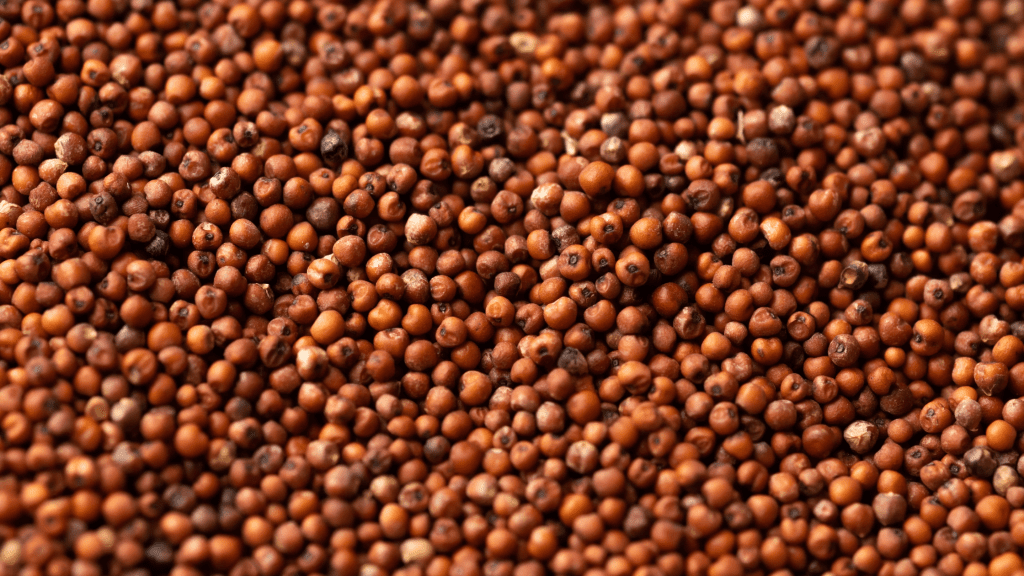

Kodo Millet: Benefits, Uses, and Side Effects
Kodo Millet (कोदो / Kodo), scientifically known as Paspalum scrobiculatum, is a highly nutritious grain that has been cultivated for thousands of years. It is particularly popular in India for its health benefits and versatility in cooking. Here, we will explore the benefits, uses, and potential side effects of Kodo millet.
Health Benefits of Kodo Millet
1. Rich in Nutrients
- It is high in dietary fiber, which helps in maintaining digestive health and preventing constipation.
- It provides essential amino acids that are crucial for muscle repair and overall body functions.
- It is packed with B vitamins, iron, calcium, and magnesium, which are vital for various bodily functions.
2. Supports Weight Loss:
The high fiber content in Kodo millet promotes satiety, reducing overall calorie intake and aiding in weight management.
3. Manages Blood Sugar Levels:
With a low glycemic index, Kodo millet releases glucose slowly into the bloodstream, helping to manage blood sugar levels. This makes it an excellent choice for people with diabetes.
4. Boosts Heart Health:
It is rich in magnesium and potassium and helps in reducing blood pressure and lowering the risk of cardiovascular diseases.
5. Gluten-Free:
Kodo millet is naturally gluten-free, making it a suitable grain for people with celiac disease or gluten intolerance.
Uses of Kodo Millet
Kodo millet is versatile and can be incorporated into your diet in various ways:
1. Porridge: Cook Kodo millet with milk or water to make a nutritious and filling porridge, perfect for breakfast.
2. Roti and Bread: Use Kodo millet flour to make rotis, flatbreads, and other baked goods.
3. Salads: Add cooked Kodo millet to salads for a protein and fiber boost.
4. Upma: Prepare a savory upma by cooking Kodo millet with vegetables and spices.
5. Khichdi: Make a wholesome and comforting khichdi by combining Kodo millet with lentils and vegetables.
6. Dosa and Idli: Use Kodo millet flour as a base for making traditional South Indian dishes like dosa and idli.
Side Effects of Kodo Millet
While Kodo millet is generally safe for most people, there are a few potential side effects to be aware of:
1. Goitrogenic Effects:
Excessive consumption of Kodo millet, like other millets, may interfere with thyroid function due to its goitrogenic compounds. It is advisable to consume it in moderation, especially for individuals with thyroid issues.
2. Digestive Issues:
Some people might experience digestive discomfort, such as bloating or gas, when consuming large amounts of Kodo millet. Gradually introducing it into your diet can help mitigate these effects.
3. Anti-Nutritional Factors:
Kodo millet contains certain anti-nutritional factors like phytic acid, which can interfere with the absorption of nutrients. Soaking, fermenting, or cooking the millet can reduce these compounds and enhance nutrient availability.
Some Ways to Enjoy the Benefits of Kodo Millet
Naario's 9 in 1 Flour Mix:
This mix contains the goodness of 8 different millets and chana, providing a convenient and nutritious option for incorporating multiple millets into your meals.
Naario's Millet Muesli:
A delicious and nutritious blend of millets and other healthy ingredients, perfect for a quick snack or a wholesome breakfast.
By incorporating Kodo millet into your diet, you can enjoy its numerous health benefits while adding variety to your meals. Remember to consume it in moderation and experiment with different recipes to fully appreciate its versatility.
